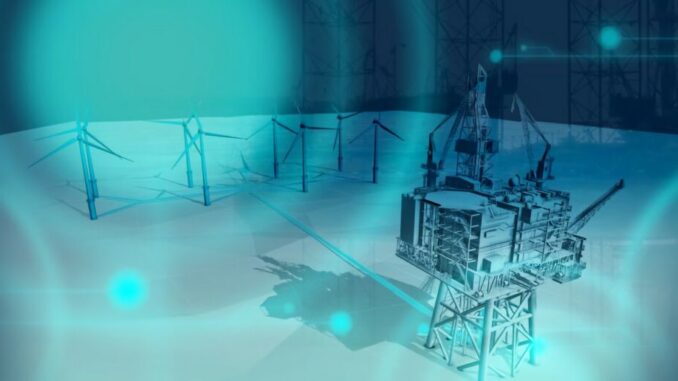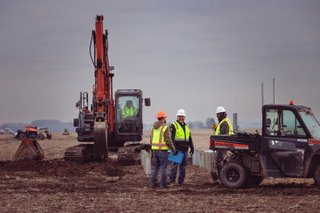
UK’s regulator North Sea Transition Authority (NSTA) has held a workshop on platform electrification with 11 major operators on the UK Continental Shelf (UKCS) and ten technology suppliers to discuss technical solutions to boost the investment case for electrification of existing assets, in a bid to deliver substantial cuts to oil and gas production emissions in the North Sea.
This workshop is part of the NSTA’s efforts to assist the industry in unlocking brownfield projects to enable existing platforms to run on clean electricity, as the commitment from operators and collaboration with technology companies is perceived to be vital to getting projects up and running. According to the UK regulator, platform electrification could be “key to dramatically cutting emissions” from oil and gas production, which would help the sector reach net zero.
The workshop, held in Aberdeen on February 20, was attended by BP, Bluewater, CNOOC International, EnQuest, Equinor, Ithaca Energy, Harbour Energy, NEO, Repsol, Shell, and TotalEnergies on the operator side. The attendees from the supplier side included ABB, Aibel, Aker Solutions, Global E&C/Rosetti Marino, Siemens Energy, JDR Cable Systems, Hitachi Energy, Apollo, Crondall Energy, and Doris Group.
With power generation making up 79% of UK offshore production emissions in 2022, the NSTA claims that the prize for achieving large-scale power emissions reductions is huge. As 3% of total UK greenhouse gas emissions are the result of offshore oil and gas operations, the regulator believes that electrifying new and existing platforms could deliver carbon savings of up to 22 million tons by 2050, representing nearly half of Scotland’s annual emissions.
Bill Cattanach, NSTA Head of Supply Chain, commented: “Platform electrification is a key step on the road to net zero. The North Sea has long been a testbed for pioneering technologies and right now we need innovative solutions to crack the significant challenge of electrification, cut emissions and accelerate the transition.
“This workshop has shone a light on some of the options available for brownfield electrification. Operators and technology suppliers should continue to engage and pursue appropriate solutions. The NSTA will continue to support these efforts and work to establish clear regulatory pathways.”
The NSTA, which uses its consent process to incentivize new greenfield oil and gas field developments, such as the Rosebank project, to be electrification-ready or incorporate low-carbon power solutions, explains that 11 operators delivered presentations outlining the significant engineering challenges they face to convert the power systems on existing platforms while at sea. Afterward, they attended breakout sessions with technology suppliers to learn more about the technologies available to support the projects.



